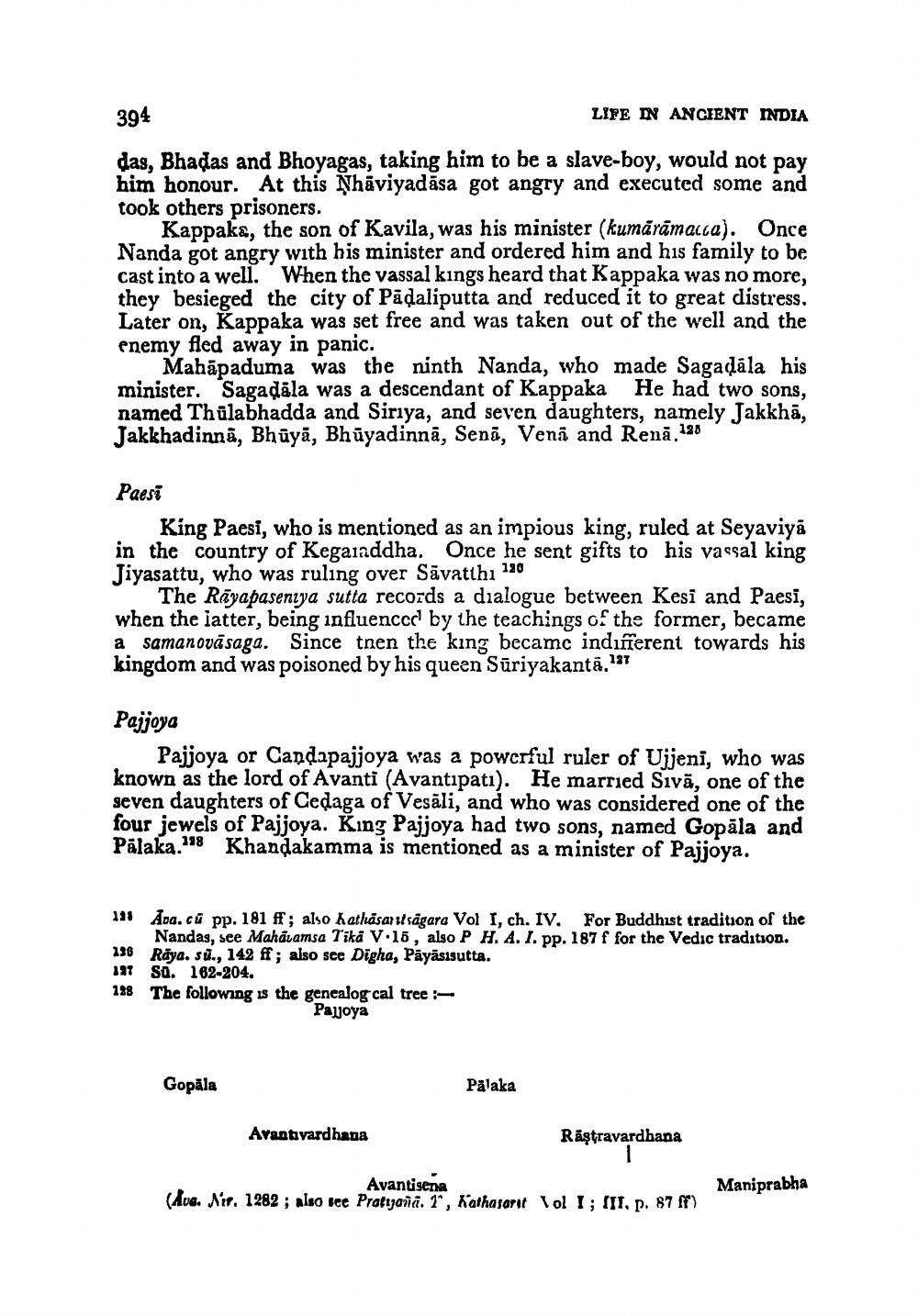________________
394
LIFE IN ANCIENT INDIA
das, Bhadas and Bhoyagas, taking him to be a slave-boy, would not pay him honour. At this Nhāviyadāsa got angry and executed some and took others prisoners.
Kappaka, the son of Kavila, was his minister (kumărāmaca). Once Nanda got angry with his minister and ordered him and his family to be cast into a well. When the vassal kings heard that Kappaka was no more, they besieged the city of Padaliputta and reduced it to great distress, Later on, Kappaka was set free and was taken out of the well and the enemy filed away in panic.
Mahāpaduma was the ninth Nanda, who made Sagadála his minister. Sagadala was a descendant of Kappaka He had two sons, named Thulabhadda and Siriya, and seven daughters, namely Jakkhā, Jakkhadinnā, Bhūyā, Bhūyadinnā, Senā, Venā and Renā. 130
Paesi
King Paesi, who is mentioned as an impious king, ruled at Seyaviyā in the country of Kegainddha. Once he sent gifts to his vassal king Jiyasattu, who was ruling over Sāvatthı 120
The Rāyapaseniya sutta records a dialogue between Kesi and Paesi, when the latter, being influenced by the teachings of the former, became a samanová saga. Since tnen the king became indifferent towards his kingdom and was poisoned by his queen Sūriyakantā.137
Pajjoya
Pajjoya or Candapajjoya was a powerful ruler of Uijeni, who was known as the lord of Avanti (Avantipatı). He married Sivä, one of the seven daughters of Cedaga of Vesāli, and who was considered one of the four jewels of Pajjoya. King Pajjoya had two sons, named Gopāla and Palaka 118 Khandakamma is mentioned as a minister of Pajjoya.
111 Ada.cú pp. 181 ff; also hathasarutsägara Vol I, ch. IV. For Buddhist tradition of the
Nandas, see Mahavamsa Tika V.15, also P H. A. I. pp. 187 f for the Vedic tradition. 136 Raya. sü., 142 ff; also see Digha, Päyäsisutta. 191 Sa. 162-204. 128 The following is the genealog cal tree :
Paijoya
Gopāla
Palaka
Palaka
Avantivardhana
Rastravardhana
Avantisena (Aug. Nir. 1282 ; also see Pratijana. 1", Kathasarit Tol I; (II. p. 87 ff)
Maniprabha




